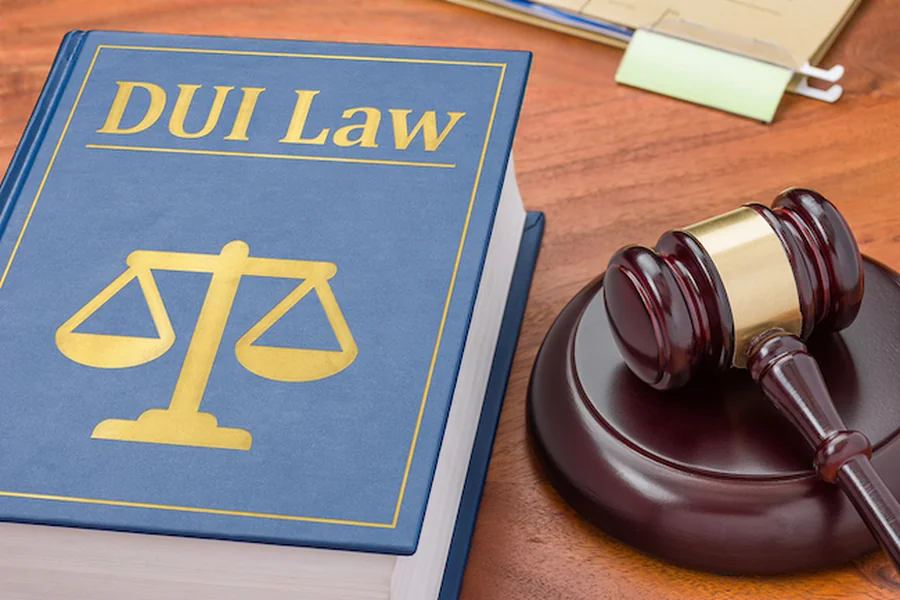Driving under the influence (DUI) is not just a traffic violation—it’s a serious crime with consequences that can touch nearly every part of your life. While many people think of DUI as just a fine or a slap on the wrist, the reality is much harsher. Let’s unpack the penalties, what’s at stake, and why understanding DUI consequences is crucial.
What is a DUI?
DUI, short for driving under the influence, occurs when someone gets behind the wheel of a car after consuming alcohol or drugs, whether they are prescription, over-the-counter, or illegal, that have caused them to become impaired and unable to drive safely. Blood alcohol concentration (BAC) states have a legal limit of 0.08%, but an impaired driver can be arrested for being on the road with any amount of BAC present.
Why Are DUI Penalties Severe?
The penalties for DUI are tough for a good reason: Drunk driving is a legitimate threat to all people on the road. When people drive drunk, they are more likely to create serious accidents in which their lives and those of others are put on the line. The laws—and the consequences that come with them—are designed to dissuade risky behavior and keep the general public safe while conveying a powerful message: don’t take DUI lightly.
Common DUI Penalties
DUI penalties can differ by state and are influenced by, among other things, past convictions, BAC level, and whether an injury or death resulted from the offense. But most states have some combination of the following types of consequences in place:
-
Fines and Legal Costs
The monetary cost of a DUI can be overwhelming. There are fines of hundreds or thousands of dollars, and that’s just the beginning. You can expect to pay court costs, lawyer fees and charges for mandatory education programs — and that’s a bad decision escalating to a major financial headache.
-
License Suspension or Revocation
Losing your driver’s license is one of the most immediate impacts of a DUI. A first offense might result in a suspension lasting 6 to 12 months, while repeat offenses often come with longer suspensions or even permanent revocation. Some states allow restricted licenses so you can still drive to work or attend treatment programs, but with strict conditions.
-
Probation and Community Service
Probation is a common penalty that keeps you under the watchful eye of the court system. You’ll need to follow strict rules, like attending counseling and avoiding alcohol, sometimes for years. Community service can also be required, giving back to the community you’ve endangered through your actions.
-
Jail Time
Jail time might be mandatory in certain cases, especially if you’re a repeat offender or your DUI caused injury or death. Even first-time offenders can see time behind bars, ranging from a weekend to several months, depending on the state and circumstances.
-
Installation of an Ignition Interlock Device (IID)
To get back on the road after a DUI, many states require an ignition interlock device—a breathalyzer installed in your car. You must blow into it and register a sober reading before the engine will start. It’s a daily reminder of the mistake and the need for sober driving.
-
Mandatory Alcohol or Drug Counseling
Courts often order DUI offenders to attend counseling or educational programs. These courses educate you on the dangers of impaired driving, help you recognize problematic behavior, and offer strategies to prevent future offenses. It’s a step toward rehabilitation rather than punishment.
-
Increased Insurance Premiums
Auto insurance companies see DUI offenders as high-risk drivers, and your rates will skyrocket. You might also need to file an SR-22 form to prove you have high-risk insurance, adding to your financial burden and making car ownership even more expensive.
-
Long-Term Criminal Record Consequences
A DUI conviction often stays on your record for years, and in some states, it’s permanent. This criminal record can affect your ability to find work, apply for housing, or get professional licenses. Some states allow for expungement, but it’s a complicated and costly process that isn’t available to everyone.
Aggravating Factors That Can Increase Penalties
Certain circumstances can make a DUI penalty even more severe. These aggravating factors include:
- High BAC Levels: A BAC well above the legal limit, such as 0.15% or higher, typically means tougher penalties.
- Minor in the Vehicle: Driving under the influence with a child passenger can lead to additional charges, sometimes classified as child endangerment.
- Causing Injury or Death: A DUI that results in injuries or fatalities can escalate charges to felonies like vehicular manslaughter, carrying lengthy prison terms.
- Repeat Offenses: Prior DUI convictions often lead to stiffer penalties, including longer license suspensions and extended jail time.
What’s at Stake Beyond Penalties?
A DUI conviction doesn’t end with the last day in court or the last payment of your fine. The repercussions ripple through many areas of life:
- Employment: Some employers may fire you or restrict your duties if you have a DUI record, especially if your job involves driving.
- Personal Reputation: Friends, family, and colleagues may view you differently, and trust can take a long time to rebuild.
- Financial Impact: Beyond the fine, add in higher insurance premiums, legal fees, and possible loss of income—costs can easily reach tens of thousands of dollars.
- Mental and Emotional Toll: The stress of a DUI charge can lead to depression, anxiety, and feelings of guilt and shame.
Reducing the Risk of DUI Convictions
The most effective way to avoid a DUI charge is to plan ahead. Here are some tips to help you make safer choices:
- Plan Ahead: Arrange a designated driver or use a rideshare service if you plan to drink.
- Know Your Limits: Alcohol affects everyone differently; even one drink can impair your driving.
- Use Tools: Personal breathalyzers can help you check your BAC before deciding to drive.
- Stay Informed: Learn about DUI laws in your state and the potential consequences to make informed choices.
Conclusion
A DUI conviction can change your life in ways you may not have imagined—from financial setbacks to social stigma to possible jail time. Staying informed about the risks and penalties is the first step in making safer decisions. If you do face a DUI charge, don’t navigate the process alone. Seek legal advice from an experienced attorney who can guide you and help protect your rights.






